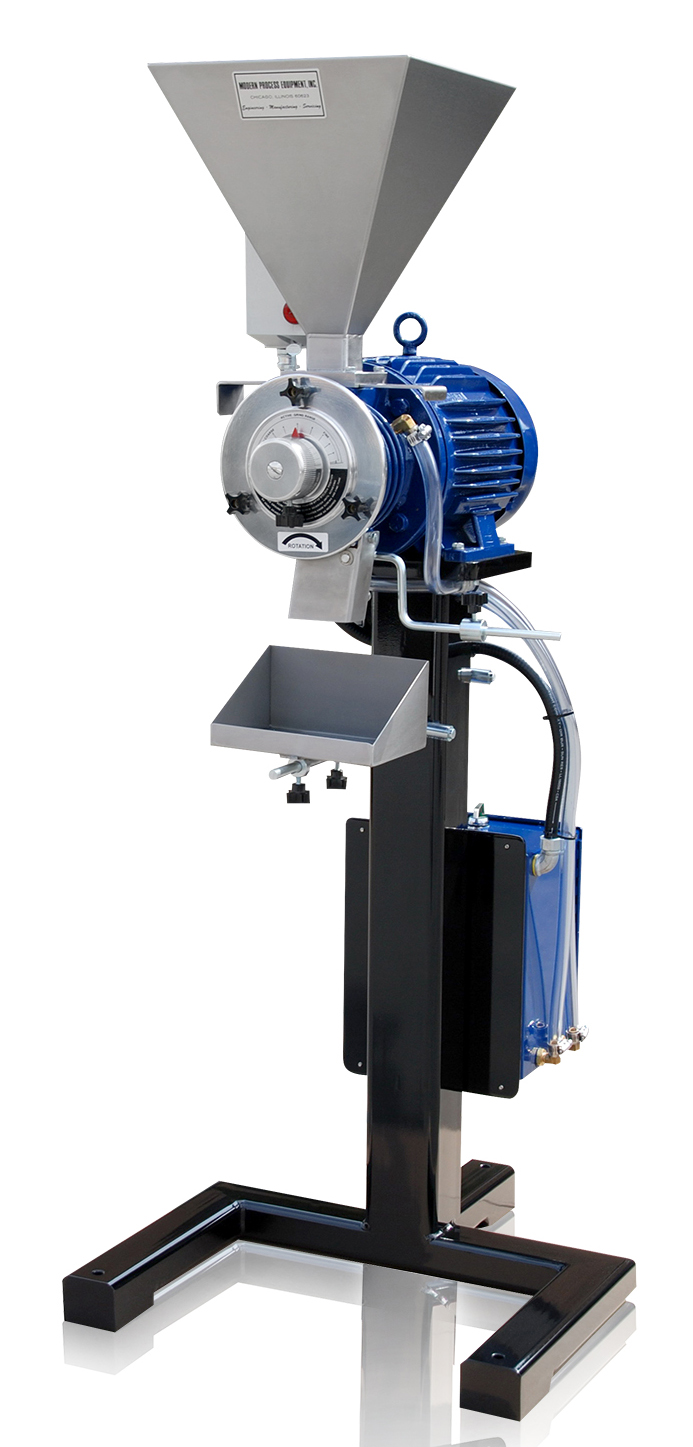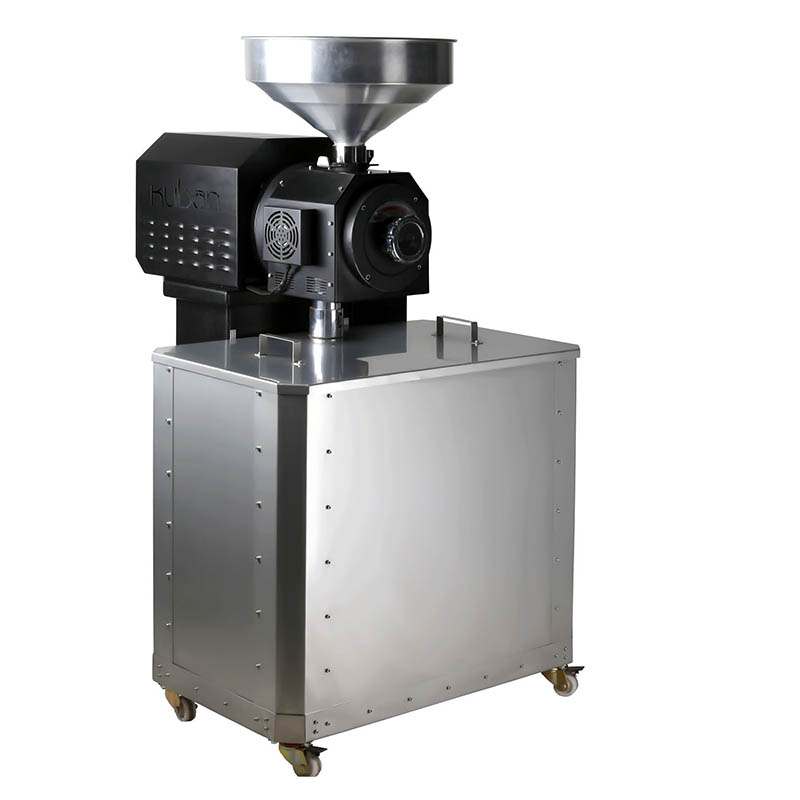How an Industrial Coffee Grinder Boosts Brew Consistency
How an Industrial Coffee Grinder Boosts Brew Consistency
Blog Article
Industrial Coffee Mill Guide: Increase Effectiveness and Quality
In the competitive landscape of coffee manufacturing, selecting the ideal industrial coffee mill plays a pivotal duty in boosting both efficiency and item high quality. Understanding the subtleties of numerous mill kinds and crucial attributes-- such as personalized work setups and durable building-- can dramatically influence the last flavor profile of the coffee. Furthermore, the optimization of the grinding procedure, combined with attentive upkeep, is important for sustaining efficiency gradually. As we discover these vital elements, it becomes apparent that the implications expand beyond mere equipment choice, impacting total business success in ways that necessitate closer examination.
Recognizing Grinder Kinds
When choosing a commercial coffee mill, recognizing the various types readily available is vital for optimizing both taste extraction and functional performance. The 2 primary kinds of mills are blade grinders and burr mills. Blade mills use sharp blades that slice coffee beans into irregular sizes, resulting in irregular removal and possibly unfavorable flavors. While blade mills are usually much more budget-friendly and suitable for small-scale operations, they are generally not suggested for commercial usage.

Inevitably, selecting the best kind of grinder is essential to maintaining top quality and effectiveness in coffee production, making it necessary for services to purchase top notch burr mills for optimum outcomes.
Secret Features to Take Into Consideration
Choosing an industrial coffee grinder calls for careful consideration of a number of key functions that can substantially influence both efficiency and the total coffee experience. One of the primary aspects to evaluate is the grinding system. Burr grinders are generally favored over blade mills, as they offer a consistent grind size, which is vital for optimal extraction and taste.
Another vital feature is the grinder's capacity. A flexible grinder with multiple settings enables you to tailor the work dimension to various developing methods, enhancing the coffee's taste account.
The construction material additionally contributes in durability and maintenance. Stainless-steel components frequently offer long life and are easier to cleanse, which is vital for keeping hygiene standards. Review the grinder's sound level, specifically in a busy café or production environment, where too much sound can be turbulent. Buying learn the facts here now a mill that stabilizes these features can considerably enhance both functional effectiveness and the top quality of the coffee served.
Optimizing Grinding Process
To achieve the most effective cause coffee prep work, enhancing the grinding process is necessary. The work size dramatically affects extraction, taste, and general quality of the made coffee. Different brewing approaches require specific grind sizes; as an example, coffee requires a fine grind, while French press demands a rugged texture. Comprehending the connection between work dimension and brewing technique is the very first action in optimization.


Additionally, keeping track of the grinding speed can maximize the process. Slower grinding typically produces much less warm, preserving fragile tastes and scents. Conversely, much faster grinding may create excessive heat, adversely influencing the coffee's quality.
Maintenance and Treatment Tips
Appropriate maintenance and treatment of industrial coffee mills are necessary for making sure ideal efficiency and durability. Routine cleansing is the structure of upkeep; residue build-up can impact taste and grinding performance. It is advisable to clean the grinder after each usage, cleaning down the exterior and eliminating any type of coffee grounds from the burrs.
Furthermore, check the grinding burrs for deterioration. Plain burrs can endanger work uniformity, so they ought to be changed as essential. Industrial Coffee Grinder. Periodically calibrating the grinder is likewise crucial, as this preserves the desired work size for different brewing methods
Lubrication of moving parts must be executed according to the producer's specifications, as this lowers rubbing and extends the life of the equipment. It is vital to utilize food-grade lubes to guarantee safety and compliance with health and wellness laws.
Last but not least, maintain the mill in a steady and dry environment to avoid rust and rust. By sticking to these upkeep and treatment tips, operators can boost the performance of their industrial coffee grinders while making certain high-quality outcome and extended functional life.
Roi Analysis
Examining the roi (ROI) for commercial coffee mills is essential for businesses seeking to enhance their coffee production capabilities. A comprehensive ROI evaluation assists our website identify the monetary viability of spending in premium grinders, permitting services to consider the first have a peek here prices versus potential gains.
Examine the acquisition cost of the grinder, consisting of setup and any kind of essential adjustments to existing framework. High-performance grinders usually lead to decreased grinding time and raised throughput, which can dramatically improve productivity.
In addition, consider the effect on item top quality. Industrial Coffee Grinder. Superior grinders produce a more consistent work dimension, which can boost flavor accounts and customer complete satisfaction, eventually driving sales. By raising the top quality of the end product, services can validate greater prices, resulting in increased income
Final Thought
In summary, a commercial coffee mill plays a crucial function in improving both efficiency and item quality within coffee manufacturing. By selecting high-quality burr mills outfitted with vital features such as flexible work settings and resilient building and construction, businesses can guarantee optimum flavor removal. Regular maintenance is critical for maintaining grinder efficiency and taking full advantage of customer contentment. Inevitably, the tactical financial investment in a trustworthy grinder contributes substantially to enhanced profits and competitiveness in the coffee market.
In the competitive landscape of coffee production, choosing the ideal industrial coffee grinder plays a crucial duty in boosting both performance and product quality. The 2 primary types of grinders are blade mills and burr grinders. Within the burr grinder category, there are flat burr mills and cone-shaped burr grinders, each with its benefits. Burr grinders are normally liked over blade grinders, as they offer a consistent work size, which is critical for optimal extraction and flavor.
In summary, a commercial coffee grinder plays a critical duty in improving both performance and item quality within coffee manufacturing.
Report this page